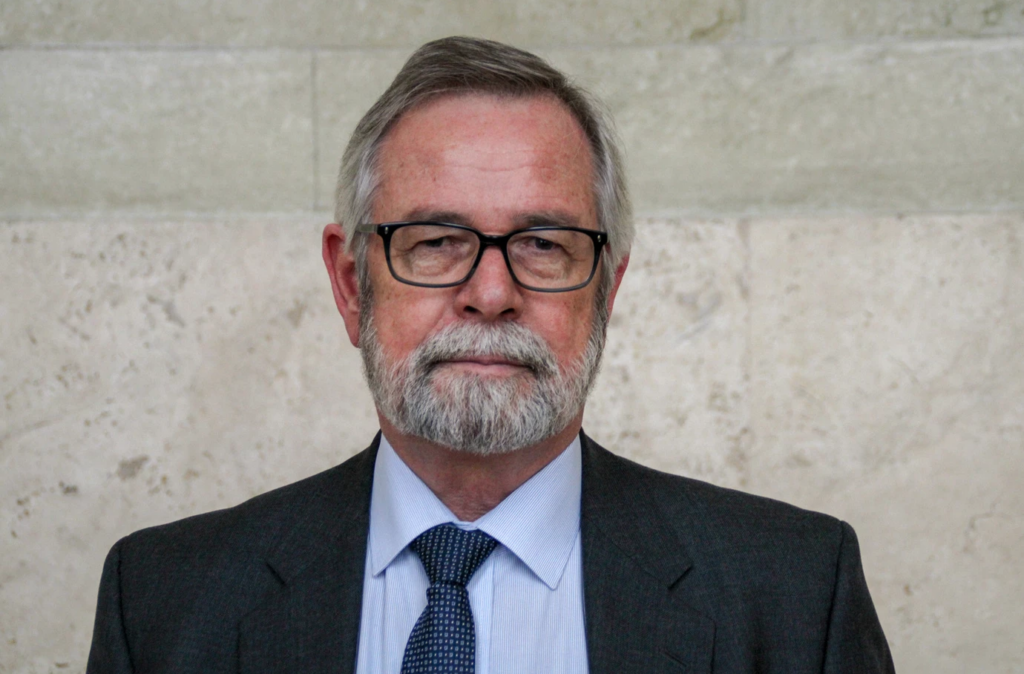Steffen Kongstad
H.E. Mr. Kongstad is the Chair of the Secretary-General’s Advisory Board on Disarmament Matters and UNIDIR’s Board of Trustees.
We are confronting a world today in which the threat and actual use of weapons of mass destruction is higher than at any time in the collective memory of most of us. The repeated use of chemical weapons has broken an important taboo. Previously sacrosant notions – the idea that a nuclear war can never be won and must never be fought – are being openly questioned by governments. An increasing number of states are accessing and testing new missiles, in space and on earth. And private individuals and groups are obtaining and using weapons that were once considered the domain of States. Military expenditures are at an all time high and highest in those areas that are least secure, such as the Middle East. The death, injury, displacement and suffering of civilians in conflict has risen to numbers not seen since 1945.
Taken together, these facts paint a rather stark picture of crisis. Yet little in the formal world of multilateral arms control and disarmament would appear to suggest that the international community has fully registered the scale of the threats that we currently face.
Indeed, signs appear to point to the distintegration of cooperation between States on weapons control. Existing bilateral and regional arrangements on nuclear threats and weapons reductions are being undone. Discussions about possible ways to address new threats are becoming more difficult to initiate, much less achieve progress on. With the exception of the 2014 Arms Trade Treaty that regulates international trade in conventional weapons, no new arrangement regulating weapons has come into force in the last decade. Initiatives such as the Treaty on the Prohibition of Nuclear Weapons and the Convention on Cluster Munitions have been spearheaded, in large part, by public campaigns outside the diplomatic world.
This lack of progress and the risks that it carries for the future of our planet, our populations, and our well-being led the Secretary-General, in May 2018, to issue his Agenda for Disarmament. His Agenda is, in essence, a call to arms for arms control and disarmament. It seeks to ’reinvigorate debate and negotiations on international disarmament, stimulate new ideas and create new momentum’.
How we reinvigorate, stimulate and create new momentum is a question with which governments and arms control experts around the world are currently grappling. The diagnosis is clear: we need a global conversation on disarmament in order to bring attention to the crises facing arms control and the scale of risk involved. We need a process that engages new and diverse voices and perspectives. How can we address malicious cyber attacks, for example, without engaging major tech companies in multilateral deliberations? We need a sustained dialogue if we are to identify new tools and solutions for hard problems, whether longstanding or emerging arms control issues. That conversation must be a global and inclusive one if we are to build the necessary support for implementation, particularly among parliaments and publics, within our regions and countries. The risks and the impact of unregulated or poorly regulated weapons and their use need to become part of the conversations that are mobilizing public, private and government attention and action.
It has proven more difficult to translate that diagnosis into practical action in the arms control environment. The public and policy awareness and engagement reflected in issues such as climate change, inequality and the future of development has been harder to achieve. Arms control must become relevant and practical if it is to survive as an issue of international attention and effective action to help us reduce current tensions among states and improve the security of people.
That is why forums such as UNIDIR’s website are increasingly critical today. We need new ideas and new conversations if we are to adapt and advance arms control to serve as a relevant and impactful tool of multilateral governance. We need new ways of framing old problems. We need knowledge and ideas to tackle new problems. And we need new ways of linking disarmament diplomacy to action on the ground.
UNIDIR is, in my view, one of the few institutions in the multilateral disarmament machinery that is trying to do this. It provides a platform for knowledge and ideas, as well as inclusive, civil and sustained dialogue on how we might translate ideas into practical arms control progress. As Chair of the Secretary-General’s Advisory Board on Disarmament Matters and UNIDIR’s Board of Trustees, I invite you to participate in what must be an urgent global conversation.
